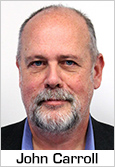 When you want to develop a drug for, say, cancer, there are some very objective measures--such as survival rate--that tell regulators just how effective it is compared to a standard drug or placebo. But in diseases involving the brain, like depression or even Parkinson's, scientists often have to settle for crude measures for assessing how patients perform or feel after treatment. And the wild card here is a placebo effect that can be very difficult to factor into studies and has been fingered for the death of multiple development programs.
When you want to develop a drug for, say, cancer, there are some very objective measures--such as survival rate--that tell regulators just how effective it is compared to a standard drug or placebo. But in diseases involving the brain, like depression or even Parkinson's, scientists often have to settle for crude measures for assessing how patients perform or feel after treatment. And the wild card here is a placebo effect that can be very difficult to factor into studies and has been fingered for the death of multiple development programs.
Case in point: Dr. Alberto Espay at the University of Cincinnati gathered together 12 Parkinson's patients and told them they would each get two shots, one a pricey drug that cost $1,500 a treatment, and the other costing only $100. And in a calculated deception that would violate any trial protocol, he told them which was which as they got their injection.
The pricey drug--they were both actually saline solutions--delivered a remarkable 28% improvement in motor skills or a 7-point improvement in one motor test given following therapy. The cheap drug eked out a three-point improvement on the same test.
Most of the patients in the study said afterward that they had expected to get a big boost from the more expensive drug and were simply amazed at the result.
There is a scientific explanation for this, says Espay, as a placebo effect can spur the release of brain dopamine, which is depressed by Parkinson's. If you can manage the placebo effect, he says, you can make a positive difference in patients' lives.
"If we can find strategies to harness the placebo response to enhance the benefits of treatments, we could potentially maximize the benefit of treatment while reducing the dosage of drugs needed and possibly reducing side effects," Espay said in a statement.
The new study, though, demonstrates again just how risky it is designing studies for diseases of the brain. If the average person enrolled in a CNS drug trial can expect to get a boost from the experimental drug--factoring in the chance that they may be getting nothing but a sugar pill--the data collected can be skewed by just those expectations. And there are scores of researchers in the depression field who would attest to that. Finding a way around the placebo effect is attracting more attention among developers who haven't abandoned the field. Learning how to manage benefits from it sounds like quite a challenge. Here's the release. -- John Carroll (email | Twitter)